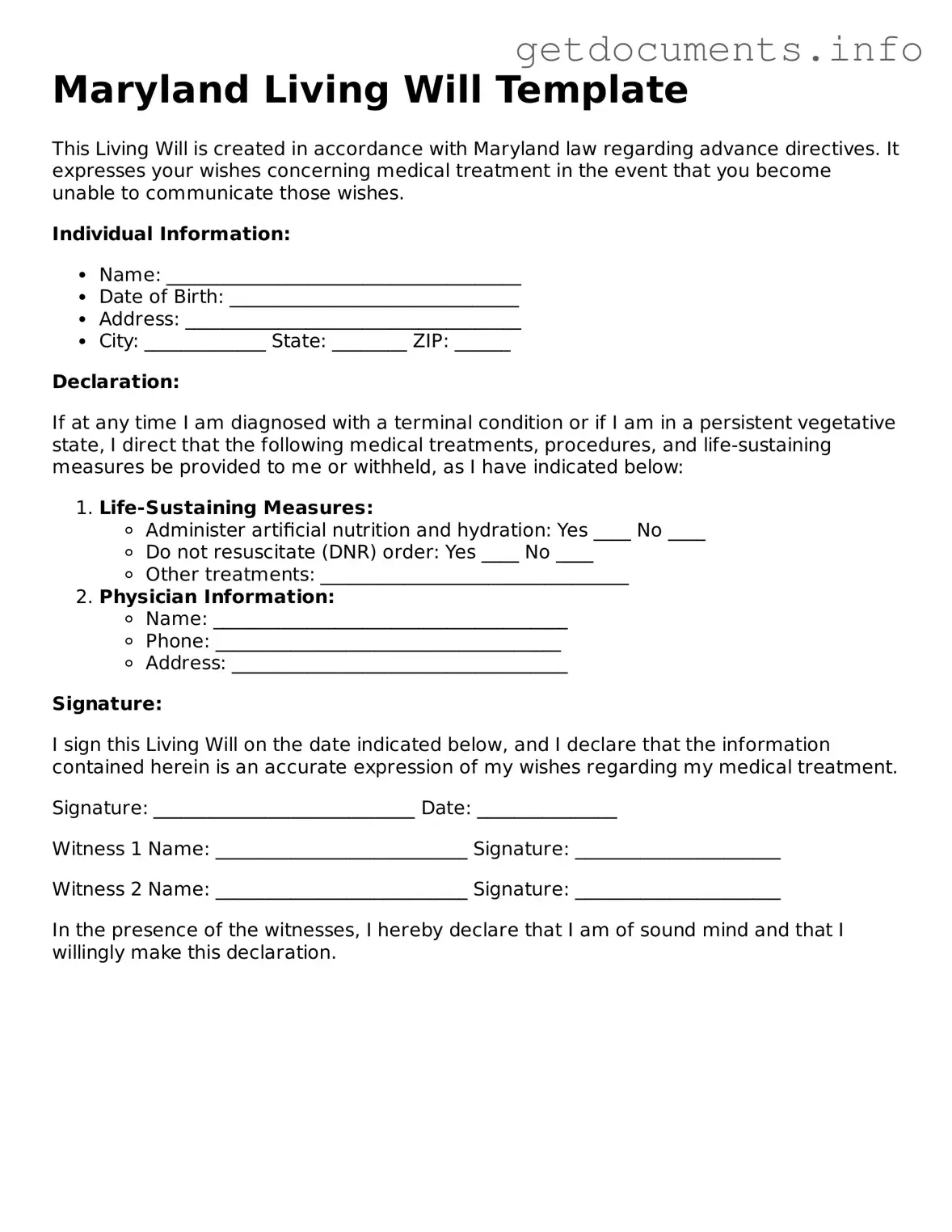Free Living Will Template for Maryland
A Maryland Living Will form is a legal document that allows individuals to outline their preferences for medical treatment in the event they become unable to communicate their wishes. This form ensures that healthcare providers and loved ones understand the individual's desires regarding life-sustaining measures. To take control of your healthcare decisions, consider filling out the Maryland Living Will form by clicking the button below.
Access Living Will Editor

Free Living Will Template for Maryland
Access Living Will Editor
Got places to be? Complete the form fast
Fill out Living Will online and avoid printing or scanning.
Access Living Will Editor
or
⇩ PDF File
